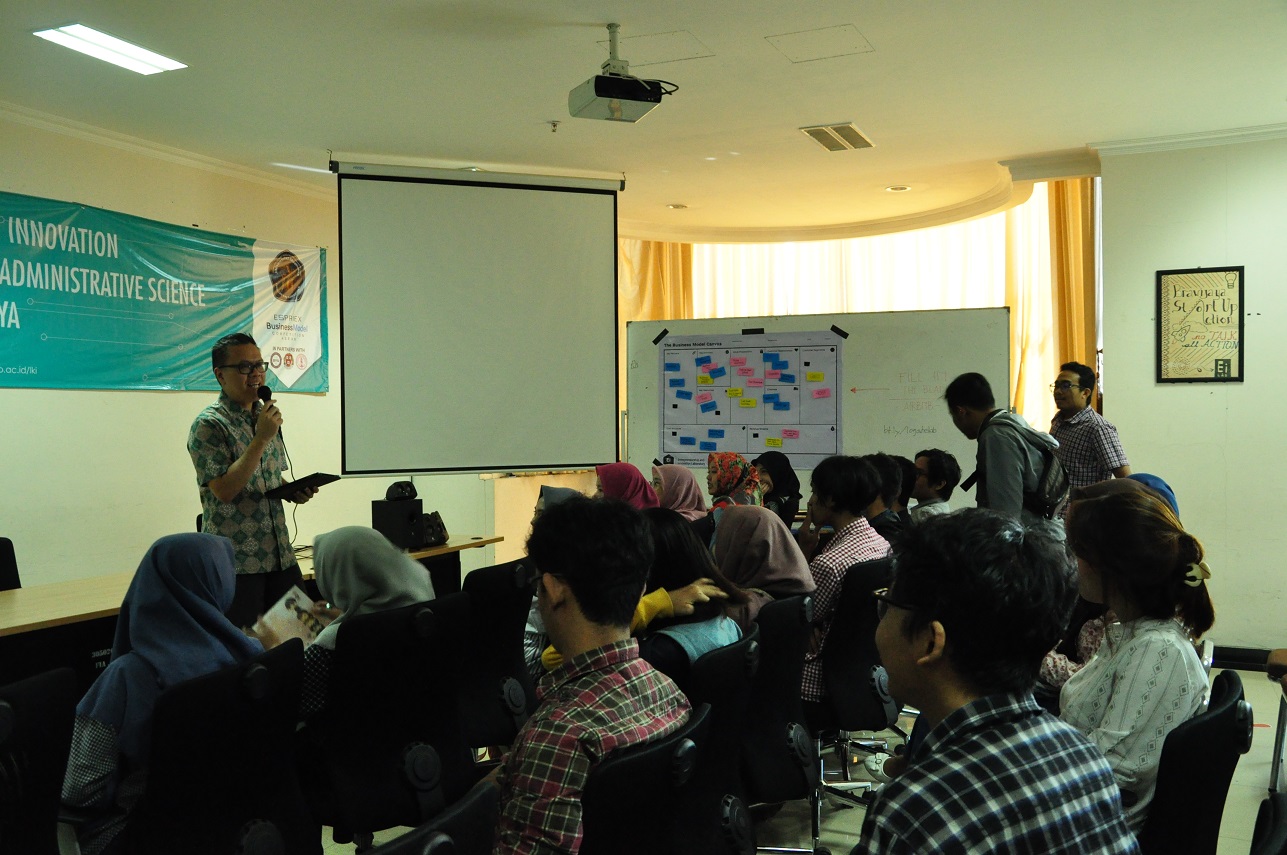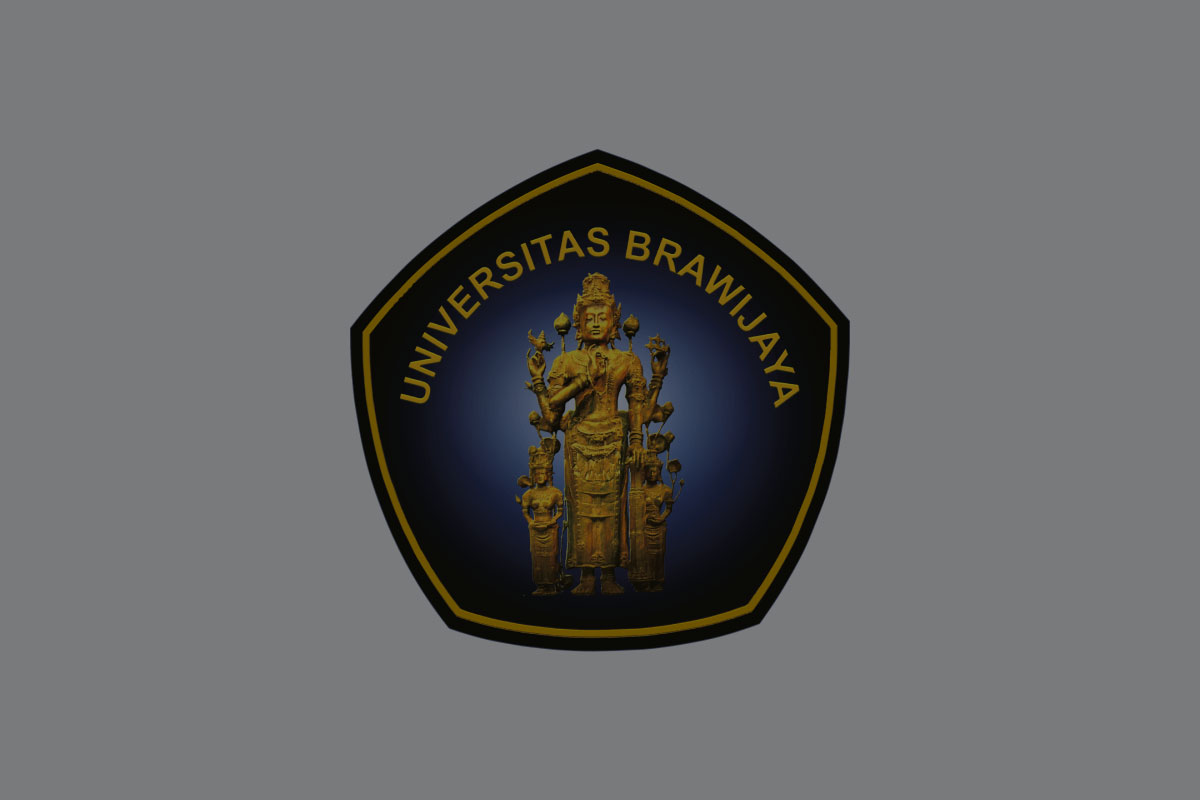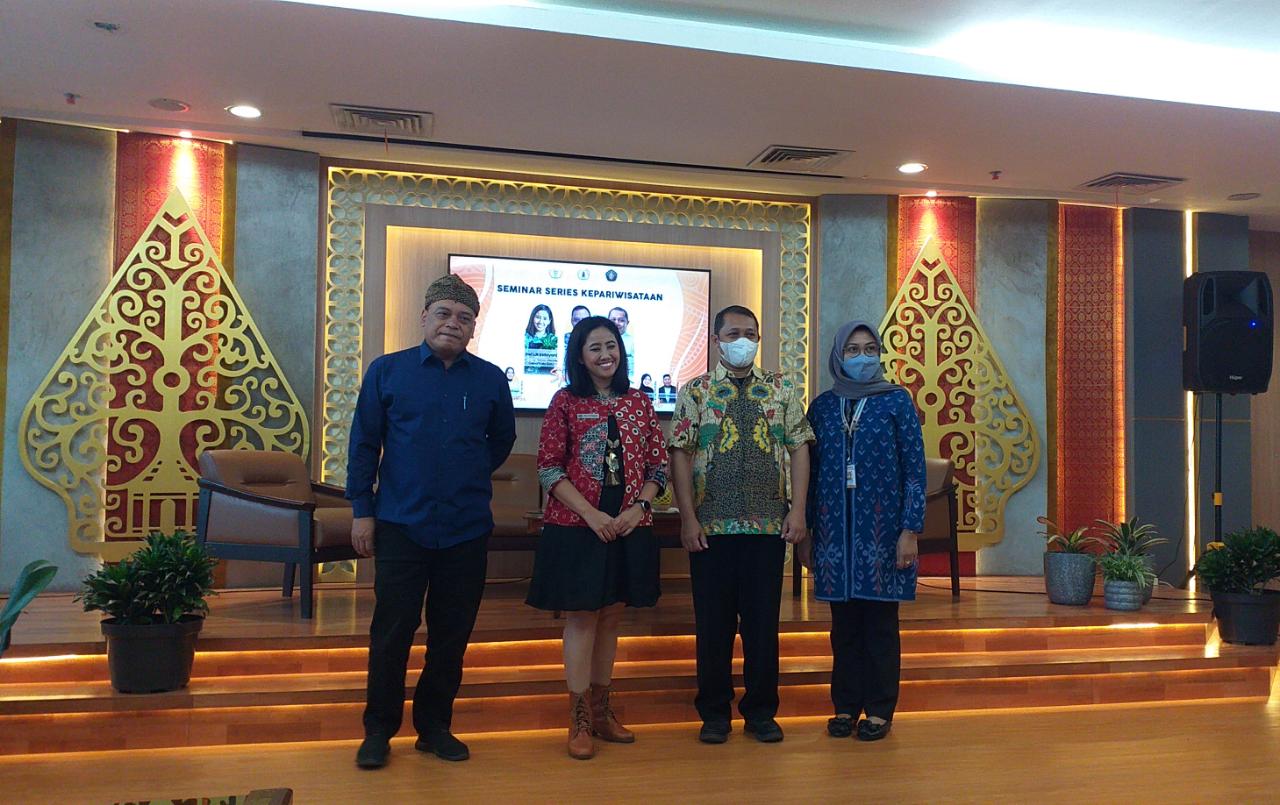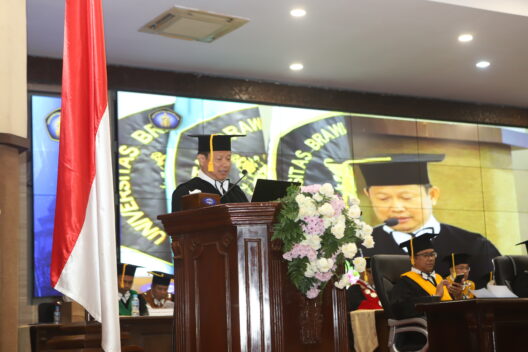The Department of Public Administration, Faculty of Administrative Sciences, Universitas Brawijaya (FIA UB), held an International Seminar with the theme "Political Economy Policies of Indonesia, Malaysia and Thailand in Facing the ASEAN Economic Community". This event was held on Thursday, March 17 2016, and took place in the Hall of Building A FIA UB 4th Floor. In discussing this theme, the committee presented 4 experts in the fields of economics, politics and public policy from 3 countries at once. They are: Prof. Dr. Mohd. Fauzi Yaacob (University of Malaya), Assc. Prof. Ahmad Martadha Mohammed, Ph.D (Universiti Utara Malaysia), Pol. Capt. Vichien Tansirikonghon, Ph.D (Burapha University, Thailand), and Dr. Mardiyono, MPA (Brawijaya University, Indonesia).
As it is known that the AEC is an economic agreement that has been mutually agreed upon by all ASEAN members. Thus, like it or not, each MEA member must prepare well in order to gain as much benefit as possible from the free economic agreement at the ASEAN level.
This International Seminar was attended by hundreds of students from the undergraduate, postgraduate, and doctoral levels from the Department of Public Administration. Apart from that, there were also lecturers who were members of the Indonesian Association of Public Administration (IAPA) East Java, an association of lecturers who work in the field of Public Administration in the East Java branch area.
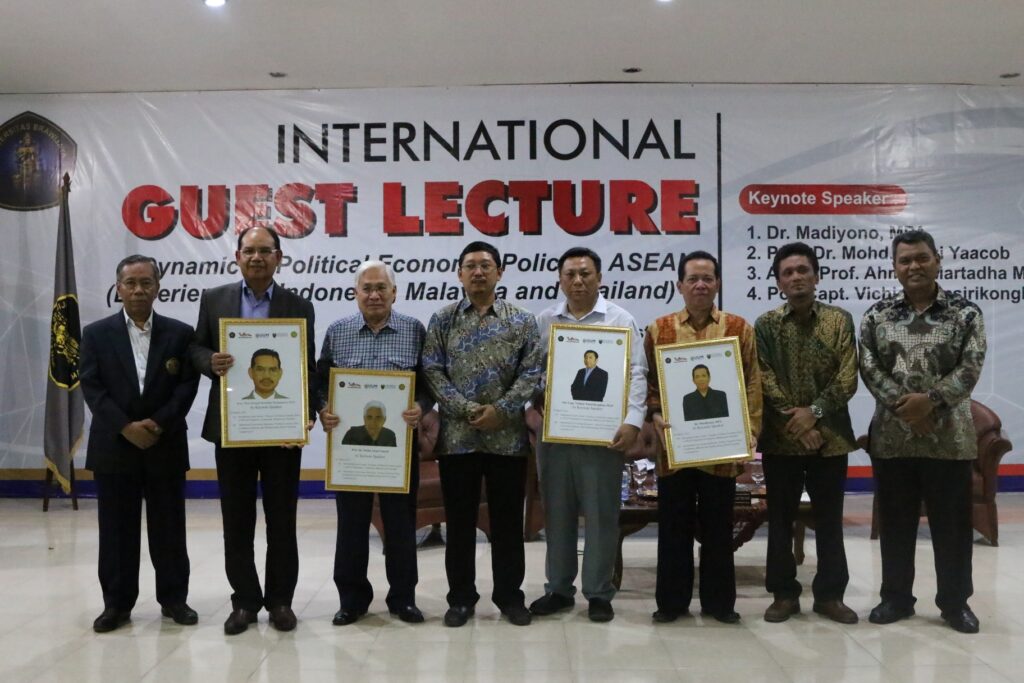
In his speech, the Dean of FIA UB Prof. Dr. Bambang Supriyono, MS said that the collaboration that had been established between the campuses where the resource persons took shelter had to be continued to a more in-depth level in the future. This is important so that there is an exchange of useful knowledge and information for each campus, especially those related to preparation in facing the ASEAN Economic Community. "I hope that this kind of activity will continue in other forms such as joint research between lecturers from each campus in Indonesia, Malaysia and Thailand," said the Dean.
The first opportunity to present the material was given to Prof. Dr. Mohd. Fauzi Yaacob from the University of Malaya. Yaacob reviewed the history of the rise of Malaysia since independence from British colonialism at the beginning of his presentation. After independence, Malaysia had to face a limited social, political and economic situation. At that time, there were many social divisions and suspicion towards people of other ethnicities. However, this situation may gradually change for the better and make Malaysia considered as one of the countries capable of changing its socio-economic conditions towards development as a modern, developed country smoothly. This was achieved, among others, by the declaration of a 5-year plan, starting with the First Malaya Plan in 1956-1960 and the Second Malaya Plan in 1960-1965. At that time, the path that Malaysia had to take was a development plan that varied in each region, to be precise in the areas of peninsular Malaysia, Sabah and Sarawak. This, according to a report from the International Bank for Reconstruction and Development (IBRD) in 1954, was due to the 'political divisions' that occurred in these areas.
On the second occasion, Assc. Prof. Ahmad Martadha Mohammed, Ph.D from Universiti Utara Malaysia said that basically ASEAN Community Relations (ASEAN Community) consists of 3 parts, namely the ASEAN Economic Community, ASEAN Security Community, and ASEAN Socio-Cultural Community. However, one challenge faced by the realization of this ASEAN Community is the existence of resistance from the ASEAN community itself which tends to be proud of its own traditions and culture. In contrast to the European Union which has cultural similarities, including languages, in building relationships among its peoples, the ASEAN Community still does not see the need for a unified society that has one language and other similar identities. Thus, currently the people in ASEAN are still not worthy of being called and are willing to call themselves the ASEAN Community.
On the third occasion, Vichien Tansirikonghon, Ph.D from Burapha University said that actually the concept of a regional community in ASEAN had been initiated for the first time since 40 years ago. In fact, this concept predates the emergence of the European Union concept at the time. Vichien underlined that the ASEAN Economic Community will provide many benefits for people in ASEAN countries. According to him, the readiness of each country in implementing the AEC depends on the readiness of its resources. One of them is in the use of language. Vichien said that countries such as Indonesia, Malaysia and Singapore were seen as more prepared to face the AEC because their people, especially the younger generation, could speak more than one foreign language.
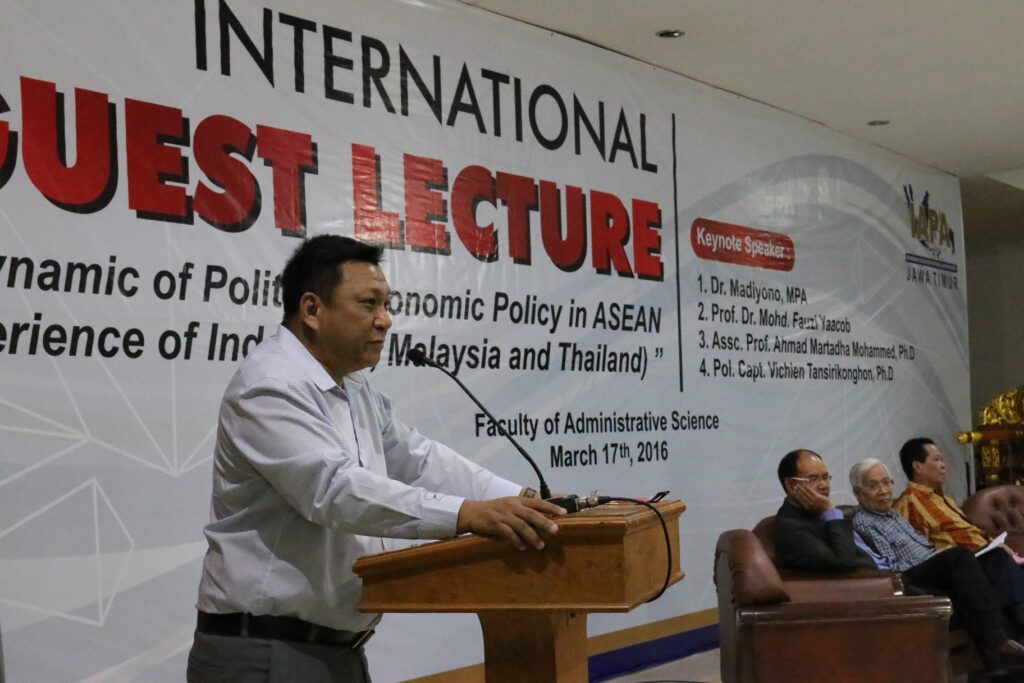
Vichien also invited the younger generation to look back at history, history that was actually written by the people of each country. He views that the existing history is mostly written and shaped by Western nations with their ideology of imperialism and colonialism. Western nations with world-class institutions that they have built, such as the World Bank, IMF, and various associations of developed countries, have forced developing countries to follow their ways of developing the country.
Coverage Team:
Article/Photo: Aulia Luqman Aziz


